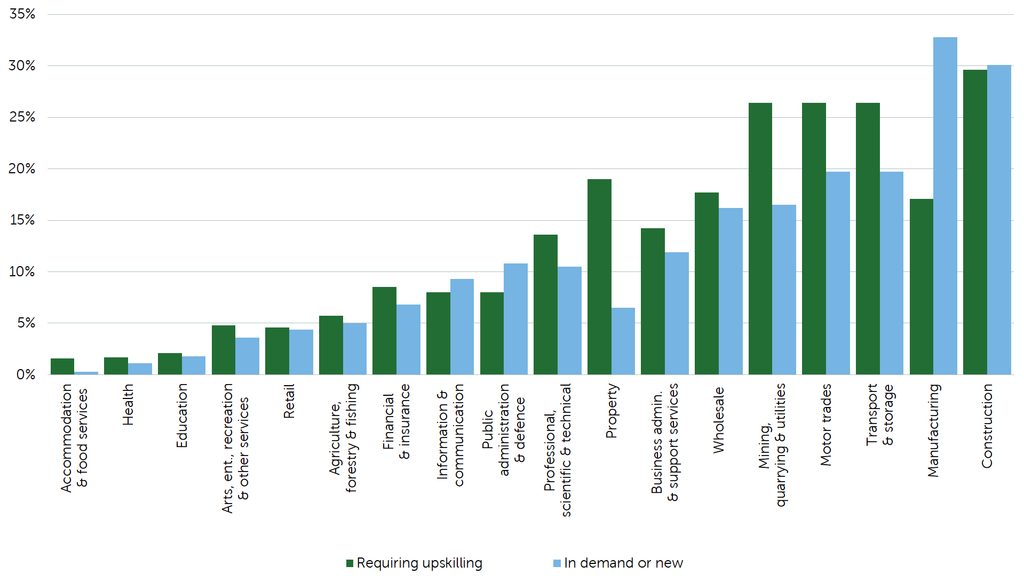Why climate change is not just an environmental issue.
Key points
- Failure to address climate change will have severe economic and social repercussions.
- Pressure for a just transition, a systemic and ‘whole of economy’ approach to sustainability, is growing.
- The human causes of climate change are now firmly established, but the human response, and impacts, are still very much to be determined.
Climate change is a human issue. There is now scientific consensus that the greenhouse-gas emissions causing climate change are predominantly man-made. This means that climate change is unequivocally a human issue – as a society, we can influence the course of that change, by adapting our individual and collective behaviour. There are, of course, many uncertainties about the potential impacts of climate change but the choices that we make also add to this uncertainty.
Failure to address climate change will have economic and social repercussions. Global action, or indeed inaction, will affect the global workforce, human wellbeing, and society at large. No one expects these impacts to be equally distributed; some estimate that 75% of climate change damage may affect developing countries, despite the poorest half of the world’s population contributing to just 10% of global carbon emissions.1
The role of the just transition
The phrase ‘just transition’ refers to the balancing of these interests: addressing the environmental risks that climate change presents, while ensuring that workers and communities are not left behind, and that the ‘green’ solutions deployed do not carry an ugly human cost. As a society, how we address this complex and increasingly politicised issue will be a considerable challenge in the coming years.
The ILO (International Labour Organisation) defines just transition as “… a bridge from where we are today to a future where all jobs are green and decent, poverty is eradicated, and communities are thriving and resilient. More precisely, it is a systemic and whole-of-economy approach to sustainability.”2
The role of the just transition, and questions of fairness and equity, also have the capacity to undermine attempts to meet the Paris Agreement on climate change. The transition to a low-carbon economy could not only lead to ‘stranded assets’ but also ‘stranded workers’ and ‘stranded communities’. Higher levels of social trust enable institutions to undertake policy reforms that are in the general long-term interests of society. Where there is no societal buy-in, there are often adverse impacts on the overall impacts that policies seek to achieve. This can have significant economic and human costs too, as was seen with the gilets jaunes (‘yellow vest’) protests in central Paris. These started in late 2018 over substantial fuel-tax increases to tackle climate change and the resulting impact on lower-income workers.
What does this mean in practice?
A key requirement of addressing climate change is changing our energy system, and reducing the use of fossil fuels. Understandably, workers in fossil fuel-related industries may feel vulnerable and oppose the changes that threaten their jobs, livelihoods and communities, as we have seen within the European Union. It is estimated that one in five UK workers could be affected by climate change – 10% of jobs may have less demand, and 10% may have more, with significant changes in structural employment. There will also be changes in the types and locations of jobs across and within these economic sectors.
Employment implications of the transition on different sectors in the UK

An additional challenge is that these impacts will often be concentrated in specific communities reliant on industry, and new employment opportunities may not be created in these regions. Some workers may easily adapt – an engineer at an oil and gas company may be well suited to being an engineer at a renewables company. But not all skills are transferable. For example, it is estimated that the north of the UK may see 28,000 direct job losses resulting from the closure of coal-fired power plants alone.3 In less clear-cut cases, there will need to be research and investigation to understand the net impact of jobs, in order to manage this.4 Subsequently, there will be the need to generate new jobs in regions affected and to retrain and reskill workers.
Moreover, the transition is not just away from fossil fuels but also towards renewables. We need to consider the social implications of renewables technology, construction and operations as their role in our energy system increases. There have been numerous allegations of human-rights abuses at renewables companies, primarily related to project construction, ranging from intimidation, to indigenous rights and land-rights disputes. More recently, we have also seen this with increasing scrutiny over the use of forced labour of minorities in solar industry supply chains. This is material for our transition to a lower-carbon society: for those whose human rights have been adversely affected, and also for investors, as project delays and cancellations can have financial consequences. With increasing discussions of mandatory human rights due diligence requirements, this is only likely to become more salient.
The human causes of climate change are now firmly established, but the human response, and impacts, are still very much to be determined. There are no silver-bullet solutions, nor is there clear responsibility for any single actor. For example, who should be accountable for the reskilling of employees, and who should bear this cost? As always, collaborative action between all stakeholders – governments, corporates, investors, NGOs (non-governmental organisations), trade unions, and employees – would be ideal. But what does this mean in practice? And how can this collaboration be facilitated? It is clear that this will not be a simple task, nor one that any single stakeholder can achieve individually. It is a deeply political, cultural and social challenge, but it is a challenge which must be addressed as we continue to shape the way climate change develops, and the human impacts it will have.
Sources:
- United Nations, Human Rights Council Forty-First session, 17 July 2019
- UNPRI, Why a just transition is crucial for effective climate action, September 2019
- ShareAction, Laying the track: The race to zero, June 2021
- Volkswagen, Fraunhofer study: Employment at Volkswagen in 2030, December 2020
This is a financial promotion. These opinions should not be construed as investment or other advice and are subject to change. This material is for information purposes only. This material is for professional investors only. Any reference to a specific security, country or sector should not be construed as a recommendation to buy or sell investments in those securities, countries or sectors. Please note that holdings and positioning are subject to change without notice.
This material is for Australian wholesale clients only and is not intended for distribution to, nor should it be relied upon by, retail clients. This information has not been prepared to take into account the investment objectives, financial objectives or particular needs of any particular person. Before making an investment decision you should carefully consider, with or without the assistance of a financial adviser, whether such an investment strategy is appropriate in light of your particular investment needs, objectives and financial circumstances.
Newton Investment Management Limited is exempt from the requirement to hold an Australian financial services licence in respect of the financial services it provides to wholesale clients in Australia and is authorised and regulated by the Financial Conduct Authority of the UK under UK laws, which differ from Australian laws.
Newton Investment Management Limited (Newton) is authorised and regulated in the UK by the Financial Conduct Authority (FCA), 12 Endeavour Square, London, E20 1JN. Newton is providing financial services to wholesale clients in Australia in reliance on ASIC Corporations (Repeal and Transitional) Instrument 2016/396, a copy of which is on the website of the Australian Securities and Investments Commission, www.asic.gov.au. The instrument exempts entities that are authorised and regulated in the UK by the FCA, such as Newton, from the need to hold an Australian financial services license under the Corporations Act 2001 for certain financial services provided to Australian wholesale clients on certain conditions. Financial services provided by Newton are regulated by the FCA under the laws and regulatory requirements of the United Kingdom, which are different to the laws applying in Australia.






Comments